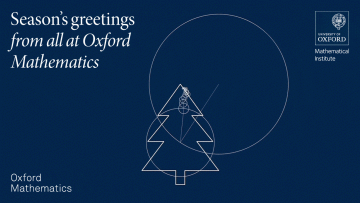15:30
Trisected 4-manifolds and link surgery
Abstract
Gay and Kirby formulated a new way to decompose a (closed, orientable) 4-manifold M, called a trisection. I’ll describe how to translate from a classical framed link diagram for M to a trisection diagram. The links so obtained lie on Heegaard surfaces in the 3-sphere, and have surgeries yielding some number of copies of S^1XS^2. We can describe families of “elementary" links which have such surgeries, and one can ask whether all links with few components having such surgeries lie in these families. The answer is almost certainly no. We nevertheless give a small piece of evidence in favor of a positive answer for a special family of 2-component links. This is joint work with Rob Kirby. Gay and Kirby formulated a new way to decompose a (closed, orientable) 4-manifold M, called a trisection. I’ll describe how to translate from a classical framed link diagram for M to a trisection diagram. The links so obtained lie on Heegaard surfaces in the 3-sphere, and have surgeries yielding some number of copies of S^1XS^2. We can describe families of “elementary" links which have such surgeries, and one can ask whether all links with few components having such surgeries lie in these families. The answer is almost certainly no. We nevertheless give a small piece of evidence in favor of a positive answer for a special family of 2-component links. This is joint work with Rob Kirby.



